Nouns – Definition, Types, Uses, Examples & Exercises | Parts Of Speech
What is Noun?
Nouns are the group of words that tell the names of people, things, places, animals and concepts E.g. pen, Juma, Hemedi, Mororgoro, Dar es Salaam, boy, girl, book, cake, table, money, computer etc.
A noun is a word for a person, place, thing, or idea. Nouns are often used with an article (the, a, an), but not always
TYPES OF NOUNS
There are several types of nouns, these are:
- Proper nouns
- Common nouns
- Countable nouns
- Uncountable noun
- Concrete nouns
- Abstract nouns
- Collective nouns
1. Proper nouns
This is the kind of nouns which describe the names of the specific/particular people, place, and month of the year and days of the week. Eg. John, Mary, Asha, Amina, Mororgoro, Mwanza, Kihonda, Monday, October etc.
Characteristics of proper nouns
1. Their initial letter is capitalized or proper nouns are always written with a capital letter at the beginning. Eg. Juma, Monday, September, India, Tanzania etc.
2. They do not receive an articles (a , an & the) Eg. Juma not a Juma, John not the John, Ally not an Ally, Abasi not an Abasi, Morogoro not the Morogoro, Mariam not a Mariam etc.
3. They do not have plural forms Eg. James not jameses, Henry not Henries, Kigoma not Kigomas, Aboud not Abouds, Mriam not Mariams, Abasi not Abasis etc.
2. Common nouns
This is the kinds of nouns which tell names of things, people and places which are not specific. Eg. Boy, girl, book, car, bicycle, fane, door, window, table, house, road, tree, pen, pencil etc.
Characteristics of common nouns
1. Their initial letters are written in small letters unless they begin a sentence. Eg. Book, road, mountain, money, market, school, chalks, flower, shop, knife, pencil, pillow, jag etc.
2. They receive articles or they can be used/ preceded with articles Eg. a cup, an orange, an apple, a wife, a nation, a language, a tree, the ways, the ground, the hospital etc.
3. They have plurals/they can be put in plural forms Eg. Boy – boys, orange – oranges, table – tables, bag – bags, region – regions, skirt – skirts, shirt – shirts, plate – plates etc.
3. Countable nouns
These are nouns which can be easily counted Eg. Books, pens, shops, cars, pencils, mango, cups, tomatoes, roads, churches, trees, guns, buckets, pillows, bananas, apples etc.
4. Non countable nouns
These are nouns which name things that cannot be counted easily E.g. water, oil, sand, sugar, salt, soil etc.
5. Concrete nouns
These are nouns which name things that can be seen or touched. E.g. table, chair, stone, paper, car, bus, computer, dog, salt, sand, egg, Juma, John, Mountain, tree, bicycle etc.
6. Abstract nouns
These are nouns that name things which cannot be easily seen or touched believed to exist E.g. God, angels, hell, devils, sprit, wisdom, air, truth, lies etc.
7. Collective nouns
These are nouns which are used to name things or people in groups. E.g. bunch, swarm, crowd, gang, tribe, village, nation, board, troop, army, band, flock etc.
Exercise 1
Identify the Type of Noun
Read the following sentences and identify the type of noun used.
- Kolkata is the capital of West Bengal.
- The Royal Bengal Tiger is found in the Sunderbans.
- The jury gave a unanimous verdict.
- Laughter is good for health.
- The crowd is very big.
- The elephant is an intelligent animal.
- The Ganges is a sacred river.
- The bravery of the soldier saved the day.
- I bought furniture for my new house.
- King Solomon was very wise.
- The man was riding a white horse.
- The shepherd took the flock of sheep to the field.
- That table is newly polished.
- I believed her innocence.
- I need your honest opinion.
- The police caught the thief.
- I brought zucchini from the market.
- Shakespeare was a famous English playwright.
- Percy B Shelley was a poet.
- This dress is made of silk.
Answers –
- Kolkata, West Bengal – Proper Noun
- Royal Bengal Tiger, Sunderbans – Proper Noun
- Jury – Collective Noun, Verdict – Abstract Noun.
- Laughter, health – Abstract Noun
- Crowd – Collective Noun
- Elephant, Animal – Common noun
- Ganges – Proper Noun, river – Common Noun
- Bravery – Abstract Noun, Soldier, Day – Common Noun
- Furniture, house – Common Noun
- King Solomon – Proper Noun
- Man, Horse – Common Noun
- Shepherd, field – Common Noun; Flock – Collective Noun
- Table – Common Noun
- Innocence – Abstract Noun
- Opinion – Common Noun
- Police, Thief – Common Noun
- Zucchini, Market – Common Noun
- Shakespeare – Proper Noun, Playwright – Common Noun
- Percy B Shelley – Proper Noun, Poet – Common Noun
- Dress – Common Noun, Silk – Material Noun
Exercise 2
Change the Gender
- The lioness was ready to pounce.
- The actor acted quite well in the movie.
- My uncle lives in New York.
- My father works in a government office.
- The gentleman gave me this chocolate.
- The king ruled with sincerity.
- She was the duchess of Stanford.
- The waiter brought us our food.
- The prince succeeded his father.
- The cock started calling at the break of dawn.
Answers –
- The lion was ready to pounce.
- The actress acted quite well in the movie.
- My aunt lives in New York.
- My mother works in a government office.
- The lady gave me this chocolate.
- The queen ruled with sincerity.
- He was the duke of Stanford.
- The waitress brought us our food.
- The princess succeeded her mother.
- The hen started calling at the break of dawn.
Directions: Underline the common nouns in the following sentences.
1. Haydn’s symphonies are considered examples of classical music.
2. The math book contained several algebraic equations.
3. The young woman walked nervously across the stage to accept her diploma.
4. As Hurricane Andrew moved away from the city, people began to come out of their homes.
5. The radio was playing loudly as the young student worked on his homework.
Directions: Underline the proper nouns in the following sentences.
1. Linda found several issues of Newsweek magazine under her bed.
2. When I was on vacation, I visited Jamaica, Puerto Rico, and Bahamas.
3. Our biology teacher, Mr. Johnson, said we were going to dissect a frog on Monday.
4. The Lakeside Country Club offers hobbies and fun activities for its members.
5. Thomas Jefferson is admired for writing the Declaration of Independence.
Directions: In the following sentences, underline both singular and plural nouns. Write ‘S’ above the singular nouns and ‘P’ above the plural nouns.
1. Several boys on the baseball team asked the coach for advice.
2. A large bear quietly crawled into the campers’ tent.
3. Each teacher is responsible for her students.
4. There were several tourists asking for information at the booth.
5. My three sisters got married in the countryside.
Directions: Fill in the blanks with “a” or “an,” whichever fits the sentence.
1. I have ________ uncle who lives in Nebraska.
2. This school needs ________ uniform parking code.
3. The soldier received __________ honorable discharge from the Army.
4. Louis stayed home from work because he had ________ very bad cough.
5. That was _________ ugly dress that was on sale.
PRACTICE TEST
Directions: Circle the selection which identifies all COMMON NOUNS.
1. The old telephone on the desk does not work properly.
A. old, telephone, desk, work
B. telephone, desk
C. telephone, desk, work
2. I like to watch the evening news in order to be informed of world events.
A. news, events
B. I, evening, news, world, events
C. evening, news, world, events
Directions: Circle the selection which identifies all PROPER NOUNS.
3. James listened to Mr. Olsen explain the consequences of plagiarism.
A. James, Mr. Olsen, plagiarism
B. James, Mr. Olsen, consequences
C. James, Mr. Olsen
4. The United States, Germany, and Japan are all competing car manufacturers.
A. The United States, Germany, Japan
B. The United States, Germany, Japan, manufacturers
C. car, manufacturers
Directions: Choose the SINGULAR OR PLURAL NOUN that fits the sentence.
5. All of the ___________ asked whether they could do extra credit assignments.
A . student’s
B. students
C. student
6. One of the _________ barked loudly when it saw the mail carrier.
A. dog
B. dogs
C. dog’s 7.
One ________ on the jury could not make up his mind about the verdict.
A. man
B. men
8. After I tried on several __________, the salesperson began to lose her patience.
A. dresses’
B. dresses
C. dress
9. Both __________ were injured in the accident.
A. player
B. players
C. player’s
Directions: Choose A/AN, whichever fits the sentence.
10. He had _______________ excuse for being late.
A. a
B. an
11. It will take _________ hour to drive to Homestead in this traffic.
A. a
B. an

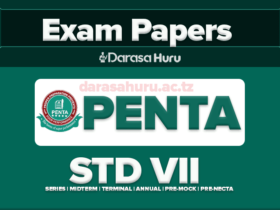
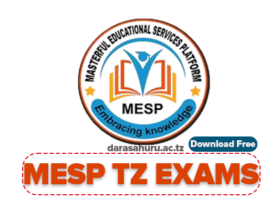
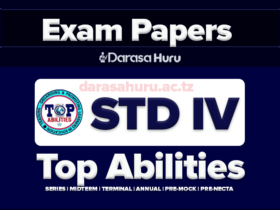
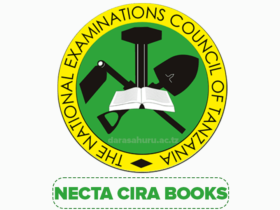
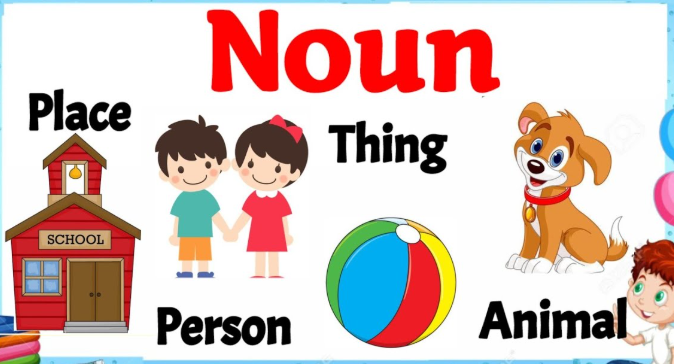

Leave a Reply